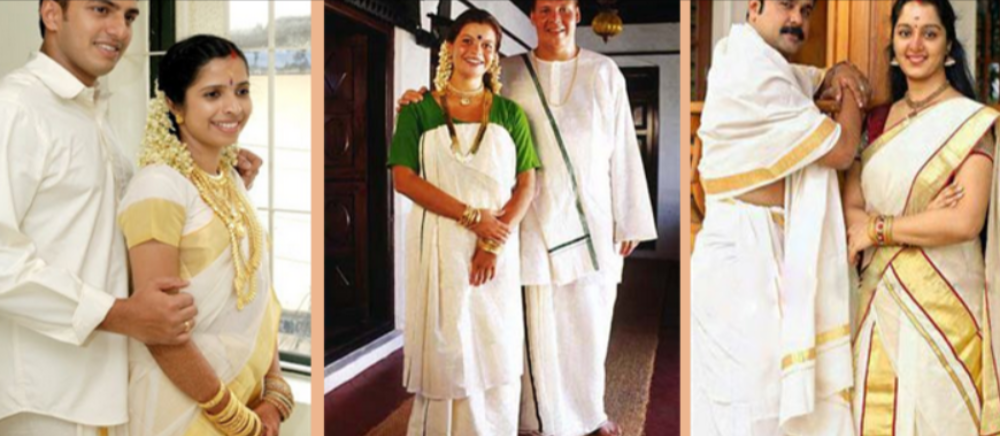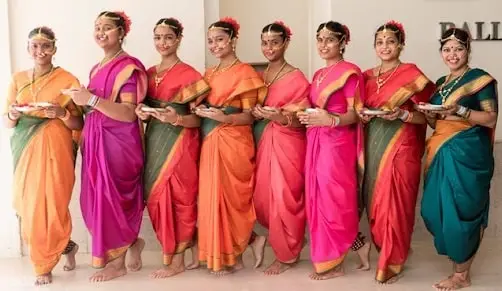Japanese female names are related to beauty, love or flowers. But there is an interesting thing with Japanese names, the meaning varies depends upon the Kanji or suffix used with the last names like ‘ko’ or ‘mi’ which means baby and beauty respectively. You may notice there are many names with kanji like that.
However, we have arranged a huge list of unique and pretty Japanese baby girl names from various resources. Some of these names are with Kanji and some are not. Take a look at below list of Japanese names in alphabetical order and select one for your baby girl:
A to Z list of Japanese names for girls:
- Ahmya: Means ‘black rain’
- Ai: This means ‘love’ or ‘indigo blue’, Ai is a very popular short name.
- Aia: Aia means ‘ruler’
- Aika: A Japanese singer
- Aiko: It means beloved one; loving child
- Aimi: Name of a Japanese pianist and a handball player
- Aina: Means ‘view or sight’
- Ainu: Means ‘goddess of fertility’
- Airi: It means ‘love, affection’. Airi is one of the most popular names for Japanese girls.
- Aiya: Meaning ‘beautiful silk’
- Akahana: A red bright flower
- Akane: It means ‘deep red’
- Akari: This word means ‘light’
- Akem: Right beauty
- Aki: Japanese unisex name
- Akiara: It means ‘bright person’
- Akiko: Means brighter light. This word has some other different meanings like queen, peaceful, bright child, superior etc.
- Akira: Means ‘bright or clear’
- Akito: Akito means ‘bright’
- Amaterasu: Sun goddess, heavens ruled under whom
- Amaya: This word means ‘night rain’
- Ami: It has different meanings like friend, sea, beauty or truth etc.
- Aneko: Older sister
- Annaisha: Japanese name meaning ‘helpful guide to other’
- Anzu: It means ‘apricot’; a juicy soft fruit
- Aoi: means hollyhock; a tall Eurasian plant with large showy flowers.
- Aratani: Means ‘precious stone’
- Arisu: Means ‘noble’
- Asa: It means ‘born in the morning’
- Asami: Means ‘morning Beauty’
- Asuga: Asuga means as quick as the like wind
- Asuka: Fragrance of tomorrow
- Atsuko: It means ‘sincere or honest child.’
- Au: Au means ‘meeting’
- Avaron: Island of apples
- Aya: Means ‘colorful’
- Ayaka: This word means ‘colorful flower’
- Ayako: Cute baby
- Ayame: A fictional character of a young cheerful woman
- Ayano: Means ‘my color’
- Ayumi: It means history or peaceful or pleasure
- Bashira: Means ‘joyful’
- Botan: Means ‘Long life’
- Bunko: Meaning is ‘literary child’
- Chiaki: It means ‘sparkling light’
- Chiasa: One thousand mornings
- Chie: means ‘wisdom’
- Chieko: It means ‘wise child’
- Chiharu: One thousand springs
- Chihiro: Means ‘seeker’
- Chika: Means ‘near and dear’
- Chinami: It means ‘one thousand waves’
- Chinatsu: Means a thousand summers
- Chiyo: It means ‘A thousand generations’
- Chiyoko: It means ‘a thousand generations’
- Chizue: Chizue means ‘durability’
- Cho: Means ‘butterfly’
- Chou: Means ‘butterfly’
- Chuya: Pure and clear like water
- Dai: Dai means ‘great’
- Danuja: Name of a ruler
- Den: Earth or shelters
- Doi: It means ‘mountain’
- Eiko: Splendid child
- Emi: Means beautiful smile/picture
- Emica: Means ‘charming’
- Emiko: Means ‘prosperous or smiling child’
- Ena: It means ‘gift from God’
- Eri: It has different meanings like ‘blessed prize or love or clever’
- Eshima: Means ‘true intention’
- Etsu: Delight
- Etsudo: Means ‘joyful baby’
- Fuji: Female name means ‘wisteria or a shrub’
- Fumiko: It means ‘a wealthy beautiful child.’
- Fuyuko: Means ‘winter child’
- Gen: Spring
- Gina: This word means ‘silvery’
- Hachi: Hachi means ‘eight’
- Haia: Nimble
- Hana: Japanese Name meaning ‘favorite’ or ‘flower.’ compare with other forms of hana.
- Hanae/ Hanako: Means ‘blossom’
- Hanako: Blossom
- Hanami: Hanami means ‘flowery’
- Haru: Springtime or sunlight
- Harue: It means ‘sunshine’ in Japanese
- Haruhi: Means ‘spring day’
- Haruka: It means ‘far off’
- Haruki: It means ‘shining brightly,’ ‘radiant,’ ‘shining life,’ or ‘radiant spring’
- Haruko: Spring child
- Harumi: Beauty of spring
- Haruna: Means ‘spring’ in Japanese
- Hatsu: Means ‘firstborn’
- Hatsuko: Firstborn baby called ‘hatsuko’ in Japanese
- Hatsumomo: Means ‘firstborn peach’
- Haya: Quick
- Hayami: It means ‘rare unusual beauty’
- Hekima: Means wisdom
- Hibiki: Echo.
- Hide: Hide means ‘excellent’ in the Japanese language
- Hideko: It means ‘splendid child’
- Hideyo: Means ‘superior generations’
- Hikari/Hikaru: Means ‘radiance’
- Hikaru: Means ‘light shining’
- Hina: It means ‘sun’, a very common Japanese girl’s name
- Hinata: Means ‘sunny place’
- Hiriko: Means ‘generous’
- Hiro/Hiroko: Means ‘prosperous’
- Hiromi: Generous beauty
- Hisa: Means ‘long-lasting’
- Hisako: Means ‘long-lived child’
- Hisoka: Means ‘reserved’
- Hitomi: Girls with especially beautiful eyes.
- Homura: Meaning fire or flame
- Honoka: Means ‘flower’
- Hoshi: ‘star’ in Japanese language
- Hotaru: Firefly
- Humiya: Healthy
- Iku: Nourishing
- Ima: Now
- Isamu: Means ‘vigorous’
- Ito: Thread
- Iwa: Rock, a popular Japanese feminine name
- Izanami: Means ‘female who invites’
- Izumi: Means ‘fountain’
- Japana: Means ‘ambitious’ in Japanese
- Jin: It means ‘tender’
- Jona: Jona means ‘God is gracious’
- Jun: This is not a month in Japan, it means ‘obedient’
- Junko: Means ‘obedient child’ in Japanese
- Kaede: It means ‘maple leaf’
- Kagami: It means ‘mirror’
- Kagome: Means ‘lost’
- Kaida: Means ‘little dragon’
- Kairi: It means ‘ocean village’
- Kairy: Kairy means ‘sea’
- Kaiya/Kaiyo: Means ‘forgiveness’
- Kame: Means ‘long-lived tortoise’
- Kameko/ Kamiko: Superior child
- Kameyo: Long-lived or tortoise as a symbol of long-lived
- Kana: Kana means ‘powerful’ in Japan
- Kano: Means ‘skill’
- Kanon: Kanon means ‘blossom’
- Kaori: Means ‘fragrance’
- Kaoru: Fragrance
- Kasumi: Mist
- Kata: Means ‘worthy’
- Katana: This Japanese name means ‘honorable’
- Katsu: Means ‘victorious’
- Katsuki: Meaning Moon
- Katsumi: Means ‘victorious beauty’
- Kayda: Kayda means ‘little dragon’
- Kayo: The beautiful generation
- Kazane: Kazane means the sound of the wind
- Kazashi: It means ‘hair ornament’
- Kazue: Meaning ‘branch’
- Kazuko/Kazumi: This name was popular in the past, written with the characters for harmony. Kazumi also derived from this, means harmonious beauty.
- Kazuko: Harmonious or peaceful child
- Kazumi: Means ‘harmonious beauty’
- Kei: Means ‘blessing’
- Keiko: Means ‘joyful or happy child’
- Keina: Keina means ‘prosperity’
- Keomi: It means ‘pure’
- Kiaria: Great fortune
- Kichi: Means ‘lucky or fortunate’
- Kiko: It means ‘hope’
- Kimi: This word means ‘beauty of the century’
- Kimiko: Means ‘valuable child’
- Kimmi: Means ‘righteous’
- Kin: It means ‘golden’
- Kioka: Kioka means ‘mirror’ in Japanese language
- Kirika: It means ‘natural beauty’
- Kishi: Means ‘happy and long life’
- Kita: Means ‘north’
- Kitiara: Kitiara means ‘blade from the north’
- Kiwa: Borderline
- Kiyoko: Means ‘pure child’
- Kiyomi: The meaning of kiyomo is ‘pure beauty’
- Ko: Baby
- Koemi: Smiling
- Koge: Means ‘scented flower’
- Kohaku: Means ‘amber’
- Kohana: Little flower
- Koharu: Means ‘heart’
- Koko: Meaning ‘stork’
- Kokoro: Means ‘soul’
- Kosuke: Means ‘rising Sun’
- Koto: Beautiful harp
- Kotone: Harp sound
- Kou: Means ‘happiness/light or peace
- Kozakura: Cherry tree
- Kozue: Means ‘tree’
- Kukiko: It means ‘snow’
- Kuma: Kuma means ‘bear’
- Kumi: Beauty, another meaning ‘nine seas’
- Kumiko: Companion child
- Kura: It means ‘house of treasure’
- Kuri: Means ‘chestnut’ in Japan
- Kyo: Means ‘unite’
- Kyoko: Kyoko means ‘mirror’
- Kyoto: Means ‘mirror’
- Kyou: This unisex name means ‘apricot’
- Madoka: It means ‘circle, a very common surname in Japan.
- Maeko: Means ‘child of truth’
- Maemi: It means ‘truthful smile’
- Maho: Honest person
- Mai: Meaning ‘brightness or flower’
- Maiko: Means ‘dancing child’
- Maiya: It means ‘rice valley’
- Makaira: Who brings happiness
- Maki: ‘true’ in Japanese
- Makiko/Makoto: Sincere person/sincerity
- Mami: Means ‘genuine’
- Mamiko: Means ‘beauty’
- Mana: Means ‘affection’
- Manami: Means ‘affectionate beauty’
- Mao/Mayu: Means ‘genuine’
- Mari: Means ‘ball’
- Mariko: Means ‘circle’
- Marri: An elegant dance party
- Masae: Means ‘elegant’
- Masako: Honest child
- Masami: Elegant beauty
- Masumi: Means increasing the beauty
- Masuyo: Means ‘profit’
- Matsuko: It means ‘pine tree’
- Mayuko: The child of a genuine person
- Mayumi: Means ‘true beauty’
- Megumi: Means ‘blessing’
- Mei: Means ‘sprout’
- Mi: ‘beauty’
- Michi: Means ‘the upright path’
- Michiko: Means ‘child on morals’
- Midori: It means ‘green nature’
- Mie: Means ‘triple branch’
- Mieko: It means the brightness of the light
- Miho: Means truth, beauty, care etc
- Mihoko: Child of loveliness
- Mika: Means ‘beautiful fragrance’
- Mikasa: Hats made of bamboo
- Miki: Flower stem
- Mikka: Three days
- Miku: Beautiful sky
- Minako: Beautiful baby
- Minami: The person from the south
- Minato: Means ‘harbor’
- Mine: Peak
- Minori: Truth
- Minoru: To bear fruit
- Mio: Cherry blossom
- Mirai: Means ‘future’
- Misa: Means ‘a beautiful bud’
- Misaki: Means ‘beauty bloom’
- Misako: Means ‘fascinating child’
- Mitsu: It means ‘light’
- Mitsuko: Means ‘shining baby’
- Mitsuru: ‘growing’
- Miu: Beautiful feather
- Miwa: This Japanese word means ‘beauty, harmony’
- Miya: Means ‘sacred/haunted house’
- Miyah: Means ‘temple’
- Miyako: Beautiful baby
- Miyo: Means ‘beautiful generation’
- Miyu: Means ‘beautiful truth’
- Miyuki: Means ‘good luck,’
- Moe: Means ‘budding’
- Momiji: It means ‘red leaves’
- Momo: Peach
- Momoe: Means ‘numerous blessings’
- Momoka: Means ‘numerous of flowers’
- Momoko: Means ‘numerous children’
- Mon: Mon means ‘gateway’
- Morie: Means bay or beach
- Morika: Fragrance from the forest
- Moriko: Child of forest
- Morina: Means ‘forest town’
- Muika: Six days
- Mura: It means ‘from the village’
- Nagi: Calm and quite
- Nakano: A famous female warrior
- Namie: Means ‘blessings’
- Namika: It means ‘flower of the wave’
- Nana: Means ‘seven’
- Nanako: Means ‘child of the greens’
- Nanami: Means ‘seven sea’ or ‘wave man’
- Nao: Honest
- Naoki: ‘Docile tree’
- Naoko: Child of docile tree
- Naomi: Means beauty
- Nara: Means Oak tree
- Nariko: Means ‘gentle baby’
- Narumi: It means ‘beauty’
- Natsuki: Hopes of the summer
- Natsuko: Baby of summer
- Natsumi: Beauty of summer
- Ne: Means ‘sound’
- Nisbett: Means ‘trustworthy’
- Nishi: West
- Noa: Affection
- Nobuko: Trustable child
- Nori: Means tradition
- Noriko: Rule of the law
- Norita: Means ‘tradition’
- Nozomi: It means ‘hope’
- Nyoko: Treasure
- Ohta: Ohta means ‘pure’
- Okemia: Pity
- Oki: Master
- Okimi: Shining light
- Orino: Field
- Rai: Means ‘trust’
- Raku: Pleasure
- Ran: “Lily/orchid.”
- Rei: Lovely
- Reiki: Means ‘healing the spirit’
- Reiko: Means ‘grateful’
- Reina: Reina means ‘wise’
- Ren: Means ‘love of the lotus’
- Rieko: Baby of someone lovely
- Rika Means ‘fragrance’
- Riko: Daughter of the jasmine flower
- Rikona: Means ‘intelligence’
- Rin: Rina is a village, Rin/Rina means ‘dignified’; also a popular short name in Japan.
- Rini: Means ‘little bunny’
- Rio: It means ‘cherry blossom’
- Risa: It Means ‘growing flowers at home’
- Rui: Means ‘affectionate’
- Rumi: Beauty of the lapus lazuli
- Ruqa: Bright blue flower
- Ruri: It means ‘emerald’
- Ryo: Means ‘brightness’
- Ryoko: This word means ‘good child’
- Sachi: Means blessed
- Sachiko: Baby of good luck
- Sada: Means ‘pure woman’
- Sadako: Means ‘pure child’
- Sadashi: Ambitious
- Saeko: Means ‘serene child’
- Sai: intelligent
- Saiua: It means ‘ripe fruit’
- Sajonara: Means ‘farewell’
- Sakae: It means ‘prosperous’
- Sakai: Means ‘prosperous’
- Saki: It means ‘hope’
- Sakiko: Blossoming baby
- Saku: Remembrance of the divine
- Sakura: Means ‘cherry blossom’
- Sakurako: Means ‘child of Sakura’
- Sango: It means ‘coral’
- Sanyu: Means happiness
- Saori: Saori is the color of sand
- Saory: Nicely woven cloth in Japanese
- Satchiko: This word means ‘lucky baby’
- Satoko: This word means ‘wise baby’
- Satomi: Meaning ‘beautiful’
- Satsuki: Month ‘may’
- Sawako: Means ‘cute baby’
- Sayaka: Means ‘clear one’
- Sayua: Swift
- Sayuri: Means ‘lily’
- Seijun: Means ‘pure’
- Seika: Means ‘pure summer’
- Seiko: Means ‘sincere child’
- Seina: Noble baby
- Seiren: It means ‘refined star’
- Sen: It means ‘fairy of wood’
- Setsuko: Temperate
- Shaiwase: Happiness
- Shig/Shigeko: Luxuriant
- Shika: Deer
- Shiki: The four seasons in Japanese
- Shiko: The woman made of stone
- Shiniqua: Means ‘victorious woman’
- Shinju: Pearl
- Shino: Means like a bamboo stem
- Shinobu: It means ‘to support’
- Shion: One who cannot be forgettable
- Shiori: Means guide, poem or weave
- Shizu: Clear
- Shizuka: Means ‘quiet’
- Shizuko: Quiet baby
- Shoko: Little baby with some great hopes
- Shun: Talented person
- Shynah: Victorious one
- Someina: Means ‘intelligence’
- Sora: Means sky
- Sorano: Means ‘of the sky’
- Subaru: One who is able to unite others
- Sueko: Youngest member in the family
- Sugi: Cedar tree
- Suki: Beloved or loved one
- Sumiko: Means the beautiful baby of the goodness
- Sumire: Lovely and adorable violet
- Sumiye: Smart girl
- Sunako: Means the ‘dark Side’
- Susumu: Means ‘progressing’
- Suzu: Means ‘bell’
- Suzue: Means branch of little bells
- Suzume: This word means ‘sparrow’
- Taka: Means ‘honorable peregrine’
- Takako: Means ‘aristocrat’
- Takara: This word means ‘treasure’
- Take: It means ‘bamboo’
- Taki: Means ‘waterfall’
- Tamaki: Bracelet
- Tamami: It means ‘jewel’ in Japanese
- Tamane: Sound of a necklace
- Tamashini: Means ‘soulful’
- Tami: People
- Tamiko: Means ‘beauty’
- Taney: Means ‘valley’
- Tani: valley; stand of glory
- Taree: Bending branch
- Taru/Toru: Large sea
- Tatsu: Means ‘dragon’
- Tatsuo: Means ‘female dragon’
- Taura: Lakes
- Teruko: Shining baby
- Toki: Means ‘opportunity’; more specifically the time of the opportunity
- Tokiwa: It means ‘constant’
- Tomiju: Means ‘longevity’
- Tomo: Means ‘knowledge’
- Tomoe: Means ‘lucky friend’
- Tomoko: Intellectual
- Tomoko: It means ‘knowing child’
- Tomomi: Means ‘good luck’
- Tonica: Something for the people
- Tora: Tiger
- Toshi: It means ‘mirror image’
- Toshiko: Ancient child
- Tsubaki: Means ‘camellia flower’
- Tsubame: Believe or trust
- Tsubasa: Means ‘wing’
- Tsukiko: Baby of the moon
- Tsunade: Thunder that is young
- Tsuru: Wish for a long life.
- Ume: It means ‘blossom of plum’
- Umi: It means ‘ocean’
- Usagi: Means ‘rabbit’
- Uta: Song
- Utano: It means ‘field of songs’
- Wakana: Nice music
- Wakumi: Means ‘spring of water’
- Yasu: Means ‘assertive’
- Yasuko: ‘peaceful baby’
- Yo: Positive
- Yoko: It means ‘Good girl’
- Yori: Reliable
- Yoru: Meaning dark
- Yoshi: Correct
- Yoshi: Good luck
- Yoshie: Means ‘beautiful river’
- Yoshiko: Favorite baby
- Yoshima: Lucky girl
- Yoshino: It means ‘fertile field’
- Youko: Means ‘sunshine’
- Yua: Means the ties that bind
- Yui: Means ‘gentleness or superiority’
- Yuina: Means ‘vegetables’
- Yuka: Means ‘fragrant’
- Yuki: Means ‘happiness’
- Yukiko: Means ‘rare child’
- Yuko: Means ‘excellence’
- Yume: It means ‘dream’
- Yumi: Beauty
- Yumiko: The beautiful baby
- Yuna: Means ‘gentle’
- Yuri: It means ‘lily’
- Yuriko: The perfect baby


